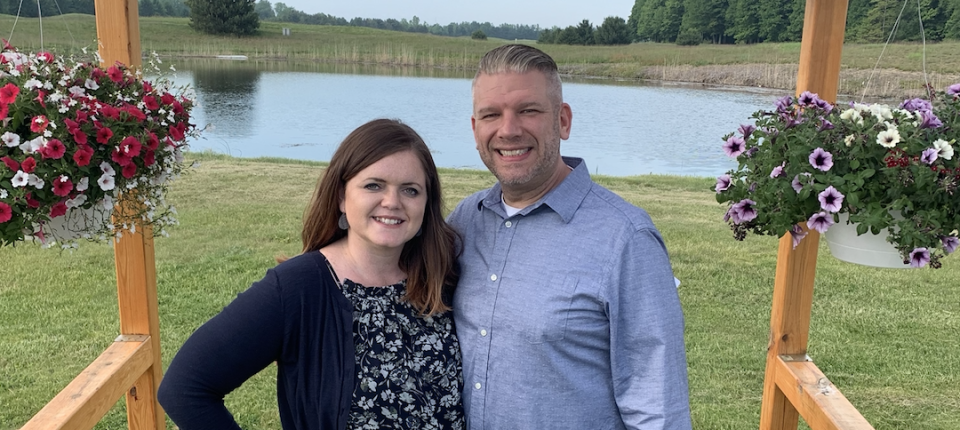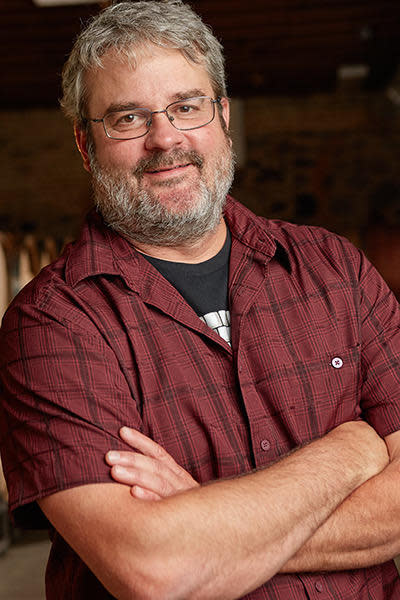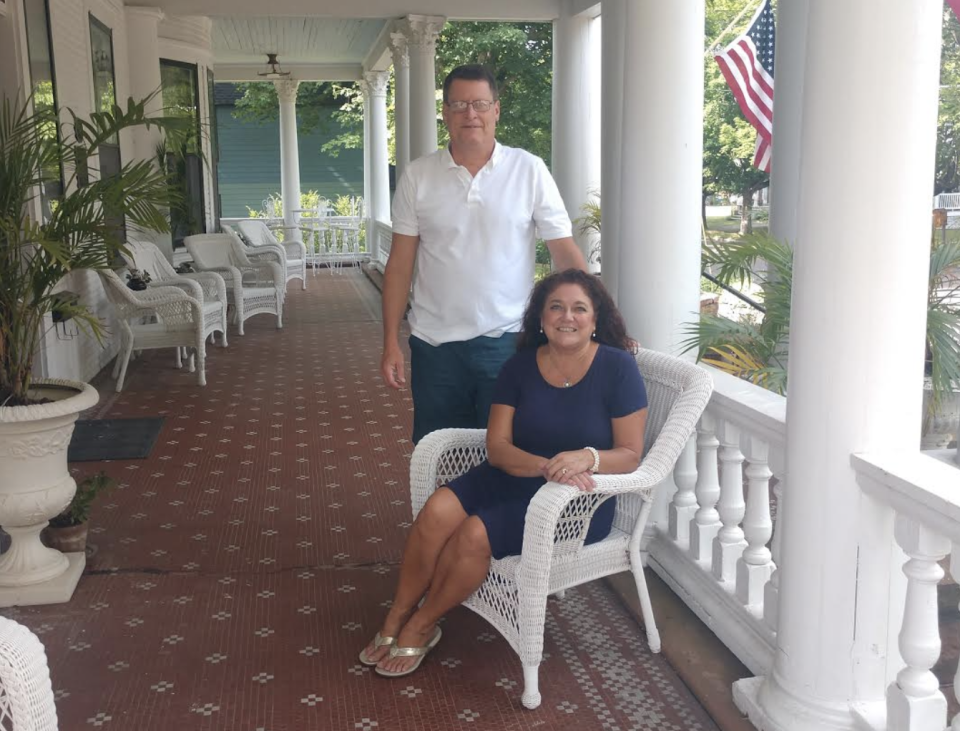Michigan tourism businesses worry about cold weather and COVID spikes
CBS News is chronicling what has changed for the lives of Americans in 2020 amid the coronavirus pandemic.
In early July, Heidi Gesiakowski, a restaurant owner in the popular tourist destination of South Haven, Michigan, said keeping her business operating was like "walking into the middle of the war every single day." The critical summer season, when her business usually earns much of its revenue was just beginning.

"The reason why it felt so dark at the beginning of the season was because there were so many new policies to put in place, so much education for customers, staff, vendors, you know, every single day it was something new," Gesiakowski said.
Since mid-June, Gesiakowski's restaurant, Taste, has been able to operate at 50% occupancy for indoor seating. It also offers takeout, which has supplemented revenue that's dropped because of the capacity regulation. Some days were even better than last year, but business is still down for the year. And now with the slower season approaching, she worries about what's ahead if to-go orders drop and she can't hold some of her usual offseason activities like parties and cooking classes.
"I'm a little nervous about that because I don't know what to expect," Gesiakowski said. "We will make it, but not all restaurants will."
Overall, the summer season was better than expected for many businesses tied to tourism in Michigan, although it was "certainly far from being good," according to Dave Lorenz, vice president of Travel Michigan, the state's tourism office. Some businesses haven't survived, but as summer starts to fade into fall, Lorenz said worse times are ahead for businesses that made it through the busier months.
"A lot of businesses are quite worried that they've been able to stay afloat for the summer, but it's going to be very difficult for them to survive the fall and into the winter moving forward," Lorenz said.

Bryan Ulbrich, the owner and winemaker at Left Foot Charley, a wine and hard cider company in Traverse City, said the summer went surprisingly well for his business. He was able to keep a large patio open and said he thinks he offers better service for customers than in the pre-pandemic era.
Ulbrich isn't losing sleep about his business surviving into next year at this point, but he's nervous about what will happen when temperatures drop. He also worries about a spike in COVID cases, as health experts anticipate could come in the fall and winter.
"How the COVID numbers are going is going to dictate a lot," Ulbrich said. "And obviously the governor's restrictions on occupancy will have to be taken into account."
By mid-October, temperatures typically peak in the upper fifties in Traverse City. Ulbrich has bought tents to keep the patio appealing, but he knows that will be a tough sell once the snow starts falling.
"We're cautious because we realize our ability to do what we're doing currently on the patio isn't going to work in a few feet of snow necessarily," Ulbrich said. "There's obviously some cautious concerns about winter, but seeing how the team handled this one, I'm feeling pretty good about how we can handle the next little challenge."
Up in the Keweenaw peninsula, the northern tip of Michigan's upper peninsula, Julie Sprenger and her husband aren't planning to keep the Laurium Manor Inn open this winter. They normally break even during the frigid winter months when travel slows. Winters are especially tough in the Keweenaw peninsula, which averaged 187 inches of snow over the past 10 seasons, according to measurements from Michigan Tech University.
"We'll lose a little bit of money, but I just feel it's better to lose a little bit of money than a lot of money by paying a salary and all of the things you have to do keeping it open," Sprenger said.

Revenue is down about 30 to 40% this year at the inn. She's hoping there won't be a jump in COVID cases over the next several weeks when tourists are expected to come see the fall colors.
"We've got this wonderful outlook on what September and October can be, but we know that it could be taken from us quickly because of circumstances beyond our control," Sprenger said. "If we can just get through mid-October we'll be thrilled."
It's also been tough for her to find summer help, since older employees who might work a few days a week haven't all been comfortable working. Other businesses have been having similar issues, she said, and owners have been "burning the candle at both ends."
Gesiakowski also had trouble finding employees for her South Haven restaurant. She and her husband opted not to open for lunch most days and are closed on Wednesdays because they were short-staffed. She thought more people would start applying when the extra federal unemployment benefits ended in late July, but that hasn't been the case.
"I'm still begging for people to come and work," she said.
Travel and dining during the COVID era comes with rules and restrictions, of course. Each business has some unique rules, but some are required by the state, including capacity limits and an indoor mask mandate ordered by Michigan Governor Gretchen Whitmer. Most people were just happy to be traveling and followed the rules, business owners told CBS News, but Gesiakowski said she's had some trouble with some customers who don't want to comply.
"Now people are just starting to get sick of it, and it's getting kind of hard again," Gesiakowski said. "I feel like I'm dealing with toddlers on a regular basis."
While there have been some difficult customers, Gesiakowski said she's had many positive experiences with customers' generosity. On a recent night, one customer bought dinner for another family at the restaurant, which led to several groups paying it forward.
"They were so taken aback, they all started crying," Gesiakowski said. "They bought dinner for another table. It went on six times."
"It was really nice, it made everybody, our staff was crying, because it was just warm in these dark times," she added.

 money
money 